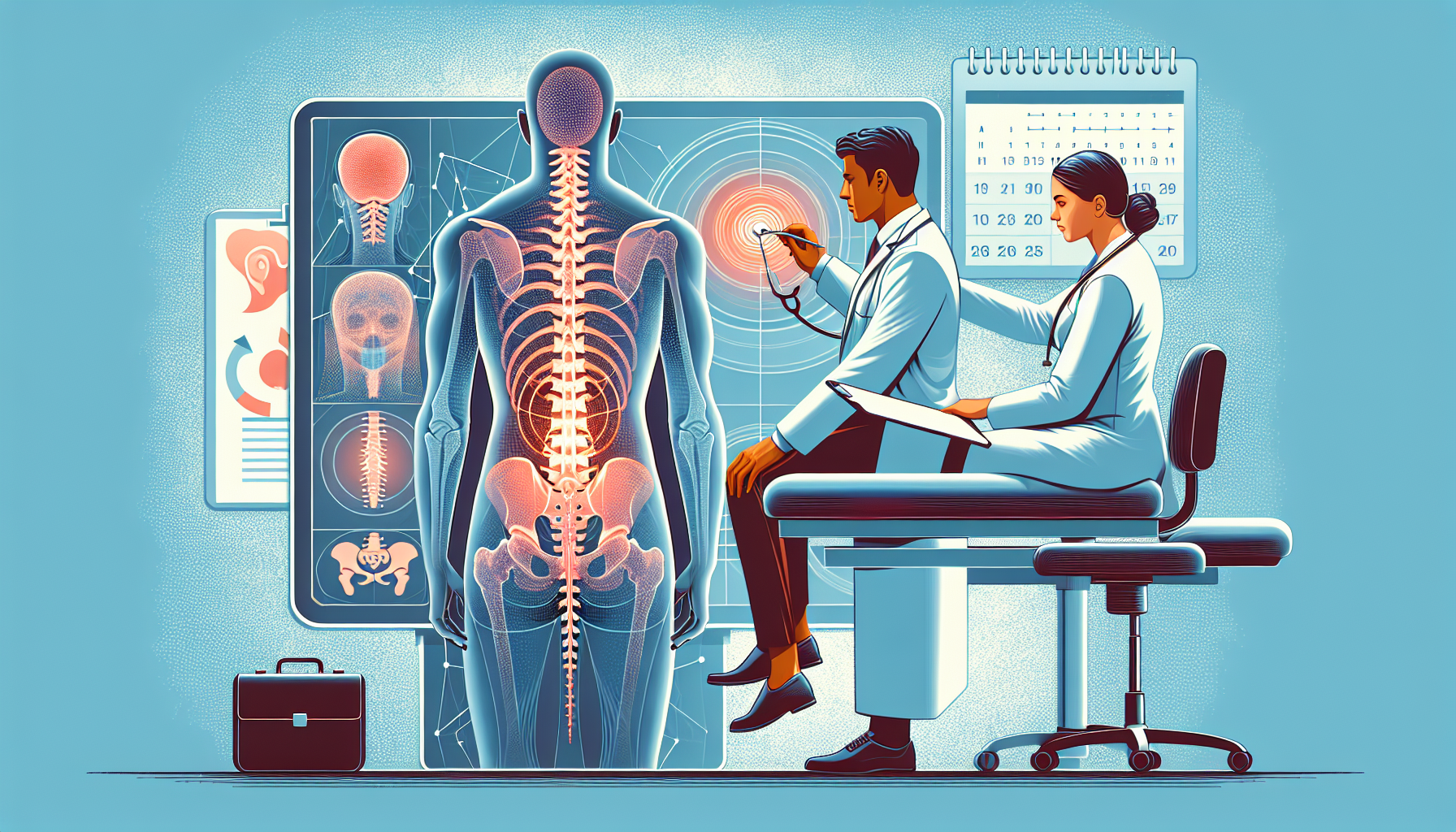Back pain is a common issue that can affect people of all ages and backgrounds. Whether it’s caused by sitting at a desk all day, lifting heavy objects, or participating in sports, back pain can be debilitating and disruptive to daily life. If you’re a back pain sufferer, you know just how important it is to find relief and manage your symptoms effectively. One crucial aspect of managing back pain is regular check-ups with a healthcare professional who specializes in spine health.
The Benefits of Regular Check-Ups for Back Pain Patients
Regular check-ups with a healthcare professional who specializes in back pain can provide numerous benefits for patients. These check-ups allow for ongoing monitoring of your condition and can help identify potential issues before they become more severe. Here are some of the key benefits of regular check-ups for back pain patients:
- Assessment of Progress: Regular check-ups allow the healthcare professional to assess the progress of your treatment plan and make necessary adjustments. They can evaluate the effectiveness of your current treatment strategies and recommend additional therapies or exercises to improve your outcomes. Regular assessments can also help to track changes in your pain levels and mobility.
- Early Detection of Complications: During regular check-ups, your healthcare professional can identify any potential complications or underlying issues that may be contributing to your back pain. By catching these issues early on, you can avoid more serious complications in the future. This early detection can be crucial in preventing the need for invasive procedures or surgeries.
- Preventive Measures: Regular check-ups are not only beneficial for managing existing back pain but also for preventing future pain or injuries. Your healthcare professional can provide guidance on proper posture, ergonomics, and exercises to strengthen your back and reduce the risk of future pain or injuries. They can also educate you on lifestyle modifications that can help improve your overall spine health.
- Medication Management: If you’re taking medications to manage your back pain, regular check-ups are essential for medication management. Your healthcare professional can evaluate the effectiveness of your current medications and adjust the dosage if needed. They can also discuss any potential side effects or interactions with other medications you may be taking.
- Mental and Emotional Support: Dealing with chronic back pain can take a toll on your mental and emotional well-being. Regular check-ups provide an opportunity to discuss any challenges or concerns you may have related to your back pain. Your healthcare professional can provide guidance, support, and resources to help you cope with the emotional aspect of living with chronic pain.
It’s important to note that regular check-ups for back pain should be in addition to any acute care or emergency visits that you may require. If you experience severe or worsening pain, neurological symptoms, or any other concerning signs, it’s crucial to seek immediate medical attention.
When scheduling your regular check-ups for back pain, it’s essential to find a healthcare professional who specializes in spine health or back pain management. They will have the knowledge and expertise to provide the most comprehensive care and tailored treatment plan for your specific condition.
If you’re looking for a reputable healthcare provider specializing in back pain treatment, consider Eastside Ideal Health. With their team of experienced professionals, they offer a wide range of services for back and hip pain treatment. Whether you need physical therapy, chiropractic care, or regenerative medicine, they can provide personalized treatment to address your unique needs. Visit their website at Eastside Ideal Health to learn more about their services and schedule an appointment.
Remember, managing back pain is an ongoing process, and regular check-ups are an integral part of that process. By staying proactive with your healthcare and seeking regular check-ups, you can effectively manage your back pain, improve your quality of life, and prevent future complications.

